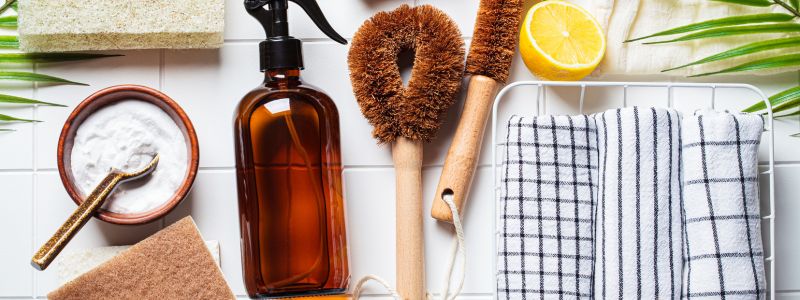Staying healthy during the holiday season is easier said than done. The holiday season is undoubtedly the busiest time of year for many people, making it challenging to adhere to your healthy lifestyle and wellness goals.
Here are wellness tips to help fuel you and lead a healthier lifestyle for the new year.
Drink a Glass of Water First Thing in the Morning
It’s best to begin your day by rehydrating with a full glass of drinking water. Hydrating first thing in the morning helps you to support digestion, enhance skin health, and boost your energy. After hours of sleep, your body has gone without water for an extended period, and drinking water upon waking helps replenish lost fluids, jumpstart your metabolism, and activate your body’s natural detox processes.
Drinking water in the morning can also promote better cognitive function, as hydration is key for optimal brain performance. It can improve concentration, focus, and mental clarity, helping you start your day with a sharper mind. In addition, adequate hydration can prevent feelings of sluggishness and fatigue, giving you the energy you need to tackle the day ahead.

Beyond hydration, drinking water in the morning may help regulate appetite, reducing the temptation to overeat later in the day. It supports your kidneys by removing toxins and promotes smoother digestion, reducing bloating and discomfort.
To make the habit even more beneficial, consider adding a slice of lemon to your morning water. Lemon can provide a natural vitamin C boost, further supporting your immune system and helping to balance pH levels in your body. Starting your day with a glass of water is a simple, effective way to nurture your body and set a positive tone for the rest of your day.
Never Skip Meals
Skipping meals correctly, known as intermittent fasting, can have fantastic health benefits, such as weight loss. But skipping meals to deprive yourself or because you are too busy to eat is a different story. Generally, skipping meals has negative consequences for your body, and this could lead to overeating and feeling less energetic. Instead, stick to three healthy meals and two snacks daily.
Skipping meals can lead to fluctuations in blood sugar levels, leaving you feeling irritable, fatigued, or mentally foggy. It may also trigger your body to enter “starvation mode,” where it conserves energy, slowing down your metabolism and making it harder to burn fat. Over time, this can disrupt your body’s natural hunger cues and lead to unhealthy eating patterns, such as binge eating later in the day.
Eating consistently throughout the day helps maintain steady energy levels, regulate metabolism, and support overall bodily functions. It also allows you to fuel your body with necessary nutrients, helping to prevent nutrient deficiencies. Planning and preparing balanced meals and snacks rich in protein, fiber, healthy fats, and complex carbohydrates can satisfy you and provide sustained energy.
Incorporating healthy snacks, like fruits, nuts, or yogurt, between meals can also help prevent overeating at meal times and reduce the risk of making poor food choices due to hunger. By maintaining regular eating habits, you’re supporting your body’s ability to manage blood sugar levels and maintain focus while preventing overeating tendencies that often follow skipped meals. Ultimately, nourishing your body with regular meals keeps your metabolism balanced, ensures consistent energy, and supports your long-term health goals. So, prioritize eating throughout the day to fuel your body and mind for success.
Get Enough Sleep
Sleep is an essential step in achieving your fitness and wellness goals. The body can’t perform effectively without proper sleep, and low energy levels can whizz enthusiasm. In addition, research shows that lack of sleep interferes with appetite-regulating hormones, leading to excessive eating and poor food choices. There’s also research that sleep deprivation is associated with high amounts of the stress hormone cortisol, which is linked with belly fat. Adults need 7-9 hours of sleep every night. But in addition to quantity, quality of sleep is essential too!

When you don’t get enough sleep, your body struggles to regulate its natural rhythms, affecting various functions, from digestion to mental clarity. Sleep deprivation can also lead to poor decision-making, especially regarding food choices. A tired mind is likelier to crave high-sugar, high-fat foods for a quick energy boost, which can sabotage your healthy eating goals.
Additionally, sleep has a direct impact on mood and mental health. Insufficient sleep can make you more irritable, anxious, and stressed, affecting your ability to handle daily challenges and maintain a positive outlook. Chronic sleep deprivation has also been linked to an increased risk of developing anxiety, depression, and other mental health disorders. Prioritizing sleep helps keep your mind sharp, reduces stress, and promotes emotional stability. It’s important to note that your sleep quality matters as much as the quantity. A full 7-9 hours of sleep is only beneficial if restful and uninterrupted.
Avoid Stress Eating
Stress eating is eating according to how you feel as opposed to hunger. Studies show that high-fat and high-calorie “comfort foods” can make us feel much better. However, a habit of stress eating can result in weight gain and critical health concerns over time. That’s why we should attempt to understand how stress eating works and how to break this pattern.
When we experience stress, our bodies produce higher cortisol levels, increasing hunger and cravings, especially for high-calorie, sugary, or fatty foods. This biological response can be tied to evolutionary survival mechanisms, where our ancestors may have sought calorie-dense foods for energy during times of threat or uncertainty. However, in today’s world, the sources of stress are more often emotional or psychological rather than physical, and using food as a coping mechanism can be detrimental to both our physical and mental health.
To break the cycle of stress eating, it’s essential to develop healthier ways of coping with stress that do not involve food. One effective strategy is to practice mindfulness and self-awareness. When you feel the urge to eat in response to stress, pause and ask yourself whether you are truly hungry or eating to manage your emotions. This simple act of checking in with yourself can help you identify triggers and differentiate between physical hunger and emotional cravings.
Give Deep Breathing a Try
Breathing meditation works fine when you give it a try. Take a few minutes right now to sit relaxed and focus on the sensations of your breath. Allow any thoughts that come within your mind to drift by without involvement. This requires training, but it’s rewarding.
Deep breathing exercises, or diaphragmatic breathing, are a simple but powerful way to calm your nervous system, reduce stress, and improve mental clarity. When practiced regularly, deep breathing can effectively manage anxiety, lower blood pressure, and boost overall well-being. The key to effective deep breathing is learning to breathe deeply into the abdomen, not just the chest, allowing your body to fully take in oxygen while simultaneously activating the parasympathetic nervous system—the body’s relaxation response.

Research has shown that deep breathing can help reduce the levels of cortisol, the stress hormone, in the body, which can mitigate the harmful effects of chronic stress, such as weakened immunity and increased risk of cardiovascular issues. Breathing exercises can act as an antidote to the fight-or-flight response, promoting a sense of calm and helping you feel more grounded in stressful situations.
Deep breathing doesn’t require special equipment or setting; you can practice it anywhere—whether at home, at work, or even in a public space. Taking just five minutes during your day to practice deep breathing can help you stay focused, relaxed, and more resilient in facing life’s challenges.
Limit Your Leisure Screen Time
Many of us spend all our spare time focused on technology, and we have less time for the habits and activities that make us feel good. Setting a limit to your screen time as part of your healthcare journey will minimize your eye strain, boost your focus, aid your sleep, and improve your in-person connections. Screen time is often addicting. If you find you’re spending more hours in front of your phone than you are being active, make a plan to substitute some of that viewing time with physical activities. For example, swap your scrolling to read a physical book, cook your favorite meals, or take a walk outside.
Excessive screen time, especially on social media or mindless browsing, can lead to increased feelings of stress, anxiety, and isolation. This constant connection can contribute to mental burnout, reducing your ability to relax and recharge. By limiting your screen time, you create space for more enriching and restorative activities. You’ll also have more opportunities to connect with loved ones in person, strengthening your relationships and improving your overall emotional health.
By being intentional about limiting your screen time, you’re reclaiming your time and prioritizing your mental, emotional, and physical well-being. Set boundaries around screen use, such as designating certain hours as screen-free or creating tech-free zones in your home, to help ensure that you stay connected to the world beyond the screen. Balance is key—embracing moments of stillness and connection without technology can foster creativity, mindfulness, and a more fulfilled, present life.
Go for nontoxic Household Cleaning Products
Conventional household cleaning products are full of harmful substances that are not good for our health. Switching to healthier options is a primary method to lessen your exposure to environmental toxins in your house. Many commercial cleaners contain chemicals such as ammonia, bleach, and phthalates, which can trigger allergies, skin irritations, respiratory problems, and even long-term health issues with prolonged exposure.

Opting for nontoxic household cleaning products can create a safer environment for your family and pets. These natural cleaning alternatives often rely on ingredients like vinegar, baking soda, lemon, and essential oils, which are effective at cleaning and free from harmful fumes and residues. Nontoxic cleaners are designed to break down dirt and grime without leaving behind toxic chemicals that could linger in your home and be inhaled or absorbed through your skin.
Transitioning to nontoxic cleaning products is an investment in your health and well-being. It can reduce your family’s exposure to harmful substances, improve your home’s air quality, and contribute to a cleaner, greener planet. With so many safe and effective options available, switching to nontoxic cleaning products is an easy and important step toward creating a healthier home.
Do Things You Enjoy Most
This often gets ignored as an essential element of healthy living, doing things you enjoy daily. Whether physical exercise, crafting, cooking, reading a book, or watching TV, save time each day to do activities you enjoy.
You have to start slowly, no matter how big or small your objective is. Small steps pave the way to long-lasting practices. Having an “all or nothing” mentality will likely reverse, and you will likely return to your old ways. Therefore, if you indulge in a pizza or skip a workout, avoid using that as an excuse to throw in the towel. Just pick up where you left off and do better next time. Keep in mind it’s about improvement, not perfection. Download Kidventure Journal
Staying Healthy Through the Holidays: Simple Habits for a Balanced and Energized Season
Maintaining a healthy lifestyle during the holiday season may feel challenging, but with simple, consistent habits, staying on track is possible. By prioritizing hydration, eating regular meals, getting enough sleep, managing stress, and setting boundaries with screen time, you can fuel your body and mind for the season’s demands. Embracing these small yet powerful changes can help you navigate the festivities without losing sight of your wellness goals. Remember, it’s about progress, not perfection—small steps today can lead to a healthier, happier tomorrow. As you prepare for the new year, incorporate these tips to continue feeling your best and supporting long-term well-being.



